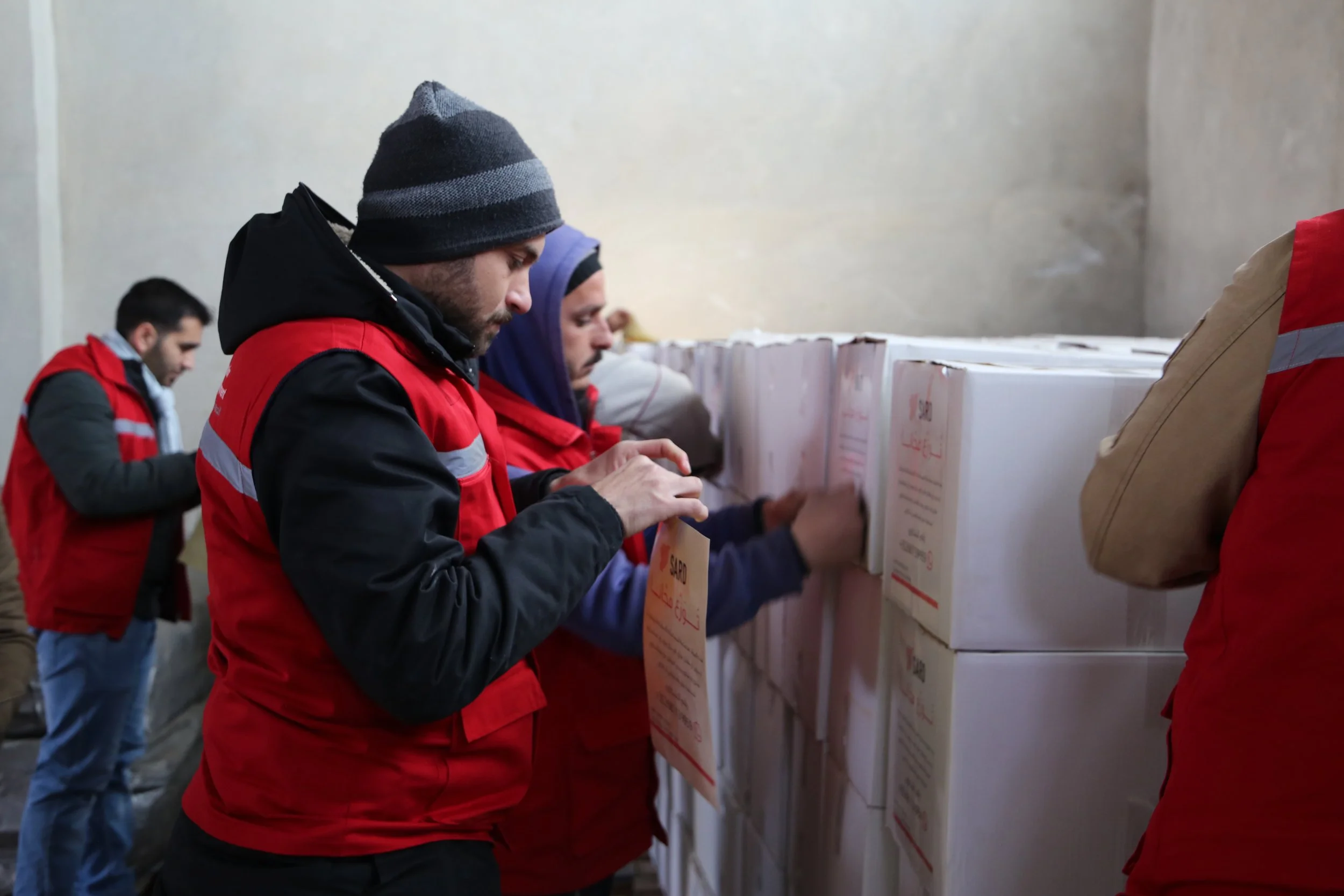
Our History
My name is Alaa Wafai, and I’m from Aleppo, Syria. This is our story.
Fourteen years ago, like many young people in my country, I was searching for an opportunity—a path that could lead to a better life. After finishing my studies, I moved to Dubai and worked there for about two years in banking and insurance. I was escaping mandatory military service, fleeing a future that didn’t resemble me, and hoping to find a place where I could feel safe.
But when the crisis in Syria erupted, nothing remained stable—not even the life I had built abroad. I started having issues with my residency, and I was forced to return to Syria. At the time, Aleppo was just beginning to witness the first waves of displacement. People were arriving from Homs, carrying pain, sorrow, and uncertainty. I didn’t know exactly what to do, but I had one clear desire: to help.
I was staying with my friend Yousef, and when I saw him going every day to Deir Wartwan to support displaced people, I couldn’t stay behind—I had to join him.
He was working with a small grassroots initiative supporting displaced families. I slept at his place, and we would go out every day, securing housing for people and responding to their most basic needs. We were fully dependent on donations from friends, local businessmen, and acquaintances in Aleppo. We saw a lot—exhausted faces, children sleeping on the ground, people homeless and afraid. But we also saw that our simple acts of support was creating hope.
One night, eight individuals—just volunteers at the time—made a decision to commit, to organize, and to stand with the increasing number of displaced families. From that collective spirit, the story of SARD began. There was no office, no car, not even a name. But we felt, for the first time, that we were doing something that made a real difference. As word spread, more donations began to reach us, and we were able to support more and more families.
Gradually, our initiative grew more organized and we joined efforts with the Jesuit Refugee Service (JRS). But as the number of displaced people continued to rise, we were no longer able to meet the needs through rented homes alone. We needed a quick and practical solution. So, we decided to turn an abandoned school, Huda Shaarawi, into a temporary shelter. It was a gamble—we lacked resources, manpower, and time. We posted a simple call on Facebook, inviting anyone willing to help to come the next day.
What happened the next morning... I’ll never forget.
We were overwhelmed by the number of people who showed up. Young men, women, students, everyday people—everyone wanted to help. We were struck by their energy and kindness, by the amount of love that filled the place. Suddenly, we had a new challenge: how do we organize all these people? How do we channel this energy to serve our goal? The school needed to be ready as soon as possible—families were waiting.
That moment taught us something profound: people weren’t just trying to save themselves—they wanted to save each other. That was a turning point. The initiative evolved from a small act of goodwill into an organized community effort that met a real need and created real hope.
We prepared the school, turned the classrooms into rooms for families, and opened a field kitchen to serve the families. Over time, the kitchen expanded and began serving dozens of other schools beyond Huda Shaarawi. That school became my first real project— one where I could bring together both heart and skill.
At that school, I met people who inspired me and reaffirmed my belief that what we were doing truly mattered. But eventually, the security situation worsened. The authorities started tracking anyone involved in humanitarian work. It became dangerous—and I had to flee.
My family left first, followed by my fiancée’s family. They were on one of the last flights out of Aleppo Airport. My friend Yousef and I later left through smuggling routes, crossing battle lines until we reached Türkiye.
My departure from Aleppo was sudden and unplanned. I didn’t get to say goodbye—to my friends, my neighborhood, or even the food I loved. I left without having one last bite of my favorite sandwich. That departure left an emptiness inside me—a suspended identity. No matter where I went after Aleppo, I never truly felt I belonged. Even years later, I’ve always felt like a stranger. Because I didn’t close the door behind me—I was torn away from it.
And yet, through it all, a small flame kept burning in my heart - a quiet but steady reminder of why I started – why the eight volunteers started.
That flame kept growing until it became what we now know as SARD - an organization born from Aleppo’s sorrow, from people’s love, and from a deep belief held by a few young people: that helping others only requires a living conscience.
Today, we have offices in Türkiye and across Syria, with over 150 team members working on the ground in both countries, and strong partnerships with international organizations. In 2024 alone, we reached nearly 300,000 people through our community-driven work in Food Security, Protection, Shelter, WASH, Early Recovery and Livelihoods. Over the years, we’ve responded to countless waves of displacements, the siege of Aleppo, floods, the Covid-19 Pandemic, the 2023 earthquakes, and most recently, the fall of the regime. But what I cherish most is that the spirit we started with is still very much alive.
SARD still pulses with the same determination and spirit we had back when we were young volunteers in Aleppo.
This is our story - a story of young people who refused to give up—who chose to become the hope others were searching for in times of crisis, and to be agents of change when it mattered most.
